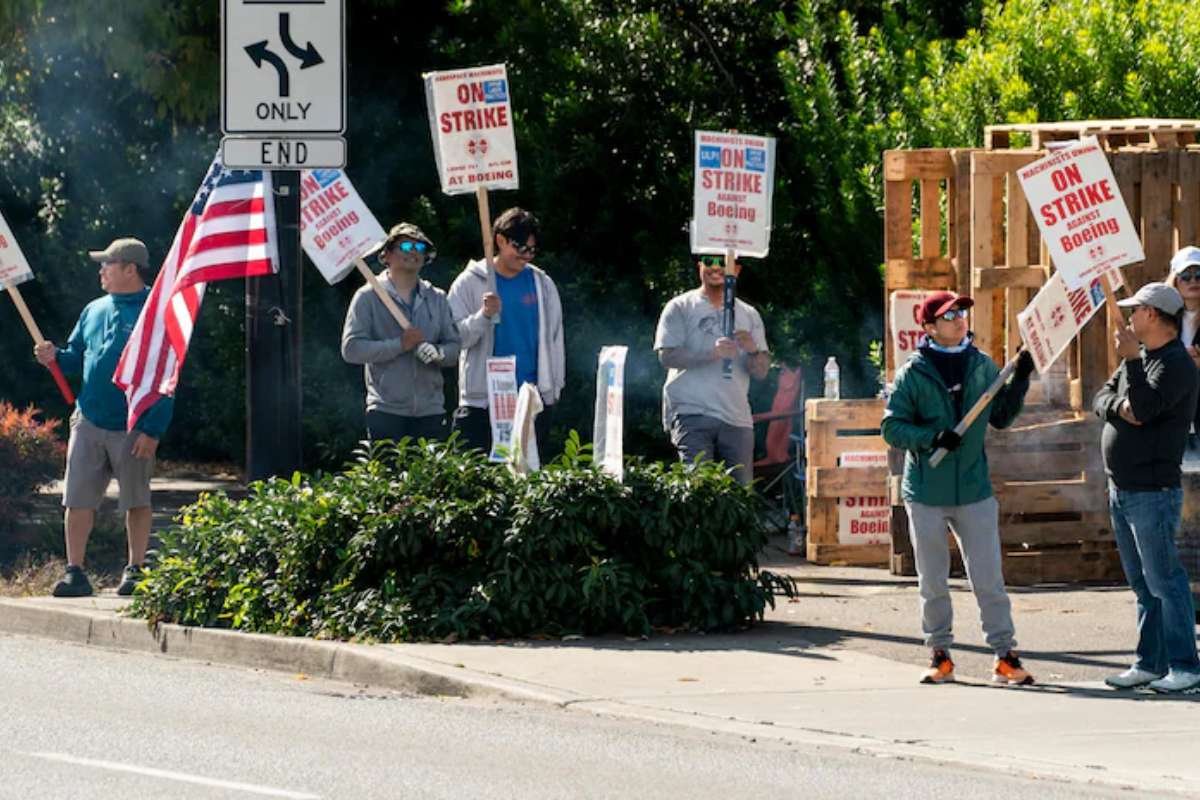(Source – business-standard.com)
Accusations of Unfair Labor Practices Escalate
The conflict between Boeing and the International Association of Machinists and Aerospace Workers (IAM) escalated on Thursday as Boeing filed an unfair labor practice charge with the National Labor Relations Board (NLRB). The company accused the union of failing to negotiate in good faith as the strike entered its fourth week. Boeing’s charge alleges that the union engaged in “regressive and surface bargaining,” misleading union members and the public about the status of negotiations and misrepresenting the terms of the proposed deal.
According to Boeing, the union failed to send negotiators with the authority to finalize an agreement, contributing to the breakdown of talks. These accusations come after a recent two-day bargaining session in which Boeing withdrew its latest contract offer. Both sides blamed the other for the stalemate, with the Machinists union accusing Boeing of sticking to an offer that didn’t meet workers’ demands. In response, Boeing asserted that the union refused to seriously consider the proposal, making “nonnegotiable demands.”
Boeing also emphasized that it had further improved its offer during the week’s negotiations, but the union continued to insist on unreasonable demands. The company reiterated its commitment to finding a resolution to the strike, though it claims the union’s public portrayal of the negotiations is misleading. Meanwhile, the Machinists union has accused Boeing of breaking labor laws, including coercive questioning and unlawful surveillance, which contributed to their decision to strike.
Contract Disputes and Stalled Negotiations
Since 33,000 union machinists walked off the job on September 13, there have been five days of mediated talks between Boeing and the union. Despite these sessions, both sides agree that no meaningful progress has been made. In its NLRB filing, Boeing accused union leaders of undermining a tentative contract agreement that they had initially endorsed but was later overwhelmingly rejected by the membership.
Boeing claims that in the first mediated session after the strike vote, the union reverted to its initial proposal from March rather than discussing the endorsed offer. Boeing’s latest offer included increases in take-home pay, retirement benefits, and a general wage increase from 25% to 30% over the next four years. However, union leadership rejected the proposal, arguing it did not address their key demands. According to IAM president Jon Holden, Boeing’s offer of a 2% annual bonus fell short, as workers had historically received higher bonuses. He also criticized the company for not addressing all retirement benefits in the latest offer.
Political Pressure and Future Outlook
As the strike drags on, the pressure to resolve the conflict is mounting. On Wednesday, 30 members of Congress sent a letter to Boeing CEO Kelly Ortberg and IAM leaders, urging both parties to reach a fair and timely agreement. Led by Washington Rep. Pramila Jayapal, the lawmakers expressed concern over the loss of health benefits for striking workers and emphasized the need for a resolution that reflects workers’ rights and contributions.
The Machinists union has not scheduled any further negotiating sessions, and Boeing’s most recent offer remains on the table. The union’s refusal to vote on the proposal indicates that they do not believe it meets the needs of their members. As the strike approaches its fifth week, both sides remain at an impasse, and it is unclear when, or if, further talks will take place.
The continued deadlock has wide-reaching implications, not only for the company and its workers but also for the broader aerospace industry and the communities that depend on it. Whether the involvement of lawmakers will bring the two parties back to the negotiating table remains to be seen, but the call for a resolution is growing louder as the strike persists.






